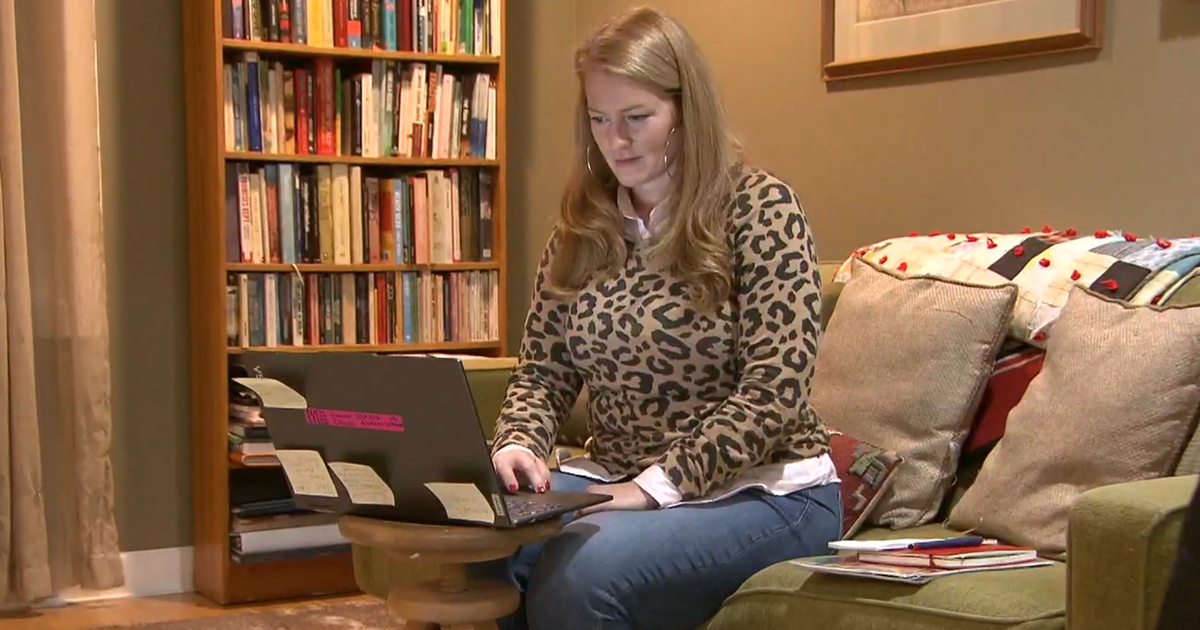Kroft: Prison lawyer is "one of the best characters" in decades of reporting
Twenty years ago, Shon Hopwood's future did not look as promising as it does today.
Over the course of two decades, Hopwood has transformed himself from a convicted bank robber into a highly accomplished associate professor of law at Georgetown Law School. Steve Kroft spoke with 60 Minutes Overtime about what drew him to the story.
"I think it's one of the most compelling stories I've ever covered," says Kroft. "Shon was one of the best characters." That's no small statement from Kroft, who has covered hundreds of stories since his tenure at 60 Minutes began in 1989.
Kroft's story is titled "Redemption," but he says Hopwood's life isn't "your typical redemption story."
"The facts are what really make it interesting," says Kroft, "and the progression of events. The fact that he accomplished something, really, I don't think anybody else has ever accomplished before: getting out of prison and becoming a law professor. That's just not done."
As we learn in Kroft's 60 Minutes story, Shon Hopwood dropped out of college, drank his way through two years of Navy service and then drifted back to his hometown of David City, Nebraska. At first, he turned to alcohol and drugs to ease his boredom, but when that wasn't enough, he tried something more dangerous—robbing banks.
'I wanted to live an exciting life," he tells Kroft. "And shoveling cow manure in small-town Nebraska and living in my parents' bedroom wasn't quite cutting it."
At 22 years old, he walked into a small-town bank armed with a rifle in search of "easy money."
Five bank robberies later, Hopwood's luck ran out. The FBI released a composite sketch of him and officers closed in, apprehending him in July 1998. After searching his car, they found multiple guns and $100,000 in cash that traced directly back to the bank he had just robbed.
"They had me," he says.
Hopwood credits "self-motivation" as the spark that pushed him to crack open law books while serving time at a federal penitentiary in Illinois. Soon, he discovered he had a passion for the law and started to see casework as a fascinating puzzle.
He began using his knowledge to help other inmates, whose cases were sometimes in dire need of help.
"Lawyers had made really bad mistakes, and it really cost their clients sometimes, you know, a decade or two in federal prison," he says.
A defining moment in his legal career came in 2003 when a fellow inmate, John Fellers, asked him to appeal his drug conviction to the highest court in the land: The Supreme Court.
He spent months mastering the facts of the case, using a typewriter to craft a formal legal petition. He sent it off to be considered. Out of 8,000 petitions filed that year, 74 were accepted and Hopwood's was one of them.
In part, Kroft says, Hopwood got lucky.
"A lot of things just happened to fall in place for him," he says. "He had filed the Supreme Court brief and the fact that it was read by Seth Waxman, who is one of the most prominent appellate attorneys in the United States, and former solicitor general of the United States, that obviously was a huge break for him."
Waxman accepted the case under the condition that Hopwood would work from prison as part of the team. They subsequently won the appeal.
While serving the last six years of his sentence, the Supreme Court granted another one of his cases. He also won a case on the Sixth Circuit Court of Appeals, sentencing motions for federal prisoners, and federal district court cases across the country.
Upon his release from prison in 2008, he spent his newfound freedom embracing the world of law. Shortly after graduating from the University of Washington Law School and gaining admission to the bar, he landed a prestigious clerkship with the United States Court of Appeals for the District of Columbia.
Shon Hopwood's life may be an inspiring story, but he says it would be wrong to think federal prison is what helped him turn his life around.
"Prison is not the place for personal growth," he says. "We warehouse people and then we kick them out into the real world with very little support and hope that a miracle happens"
Hopwood and another former inmate have launched a website called Prison Professors and are now working to help prisoners turn their own lives around, starting from the time they enter prison. Hopwood says he believes prisons should invest in vocational training, mental health counseling, and drug treatment to help reduce recidivism.
"We hope to show the country that redemption for prisoners is possible if they are given educational and life skills resources while incarcerated," Hopwood says.
The videos above were originally published on October 15, 2017.



